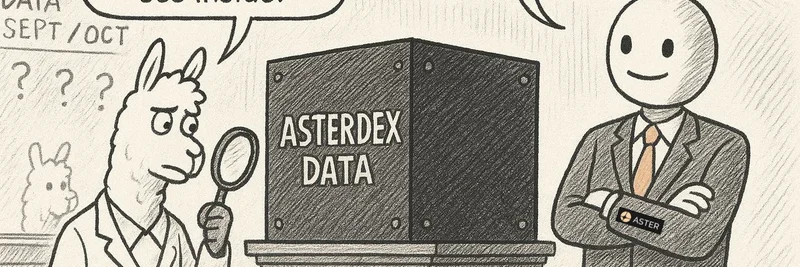Hey there, meme token fans! If you're deep into the world of blockchain and always on the hunt for the next big thing, you've probably come across Laura Shin's Unchained Daily newsletter. It's a go-to source for crisp, insightful crypto updates. In her latest edition shared on X (formerly Twitter), she breaks down some hot topics shaking up the DeFi and trading scenes. Let's dive in and unpack what this means for you, especially if you're trading meme coins on DEXes or hunting for airdrops. You can check out the original post here.
Hyperliquid's Jeff Yan Tackles the "Revenue FUD"
First up, Hyperliquid's founder Jeff Yan is pushing back against what he calls "revenue FUD" – that's fear, uncertainty, and doubt spread about the platform supposedly prioritizing profits over its users. Hyperliquid is a decentralized perpetual futures exchange (think trading contracts without expiration dates), and it's become a favorite for meme coin traders thanks to its high-speed execution and low fees.
Yan explained that during the market dip on October 10, Hyperliquid's auto-deleveraging (ADL) system actually helped traders by redistributing gains from winning positions to cover losses, saving users hundreds of millions of dollars. Instead of pocketing that as revenue, the protocol put traders first. This is huge for meme token enthusiasts because volatile assets like dog-themed coins or viral pumps often see wild swings, and a fair system like this keeps things balanced without predatory liquidations.
If you're trading perps on meme tokens, Hyperliquid's stance reinforces why it's gaining traction over centralized exchanges (CEXs) like Binance. No more worrying about hidden fees or biased liquidations – it's all on-chain and transparent.
DeFiLlama Brings Back Aster, But Transparency Questions Linger
Next, DeFiLlama – the popular analytics platform tracking total value locked (TVL) and volumes across DeFi protocols – has quietly relisted Aster, a decentralized exchange. But it's not all smooth sailing. Aster was delisted earlier this month over suspicions of wash trading, where fake trades inflate volumes to make a protocol look busier than it is.
Even with the relisting, there's missing historical data, creating "big gaps" as one exec put it. This leaves ongoing doubts about data integrity, which is critical for meme token projects that rely on accurate metrics to attract liquidity and investors. If you're scouting new meme launches on DEXes, unreliable data could lead to bad decisions, like jumping into a pool with inflated hype.
The cartoon from the newsletter nails it: even after relisting, we still can't "see inside" the black box of Aster's data. For blockchain practitioners, this highlights the need for better verification tools in DeFi trackers. Stick to trusted sources and cross-check with on-chain explorers to avoid getting caught in the wash.
Binance Busts Bots: 600 Accounts Banned for Manipulation
Shifting to centralized exchanges, Binance has cracked down hard, banning over 600 accounts for using unauthorized bots and automated tools. These were exploiting Binance Alpha, likely a program for alpha testing or rewards, by farming activities unfairly.
Bots are a double-edged sword in crypto – they can automate trades for efficiency, but when used to manipulate markets, they hurt fair play. This is especially relevant for meme tokens, where pump-and-dump schemes often involve bot armies to drive artificial hype. Binance's move aims to level the playing field, and they're even rewarding users who report suspicious activity.
If you're a meme trader on Binance, this could mean cleaner markets with less manipulation, making it easier to spot genuine pumps driven by community buzz rather than scripts. It's a reminder to play by the rules; getting banned could lock you out of one of the biggest exchanges.
OpenSea Plans SEA Token Drop to Reward the Community
Finally, some exciting news from the NFT world: OpenSea is gearing up for a SEA token launch in the first quarter of 2026, with a whopping 50% of the supply allocated to the community. This includes active users, creators, and participants in their rewards programs. Plus, they'll use half of the launch revenue to buy back SEA tokens, potentially boosting its value.
OpenSea is the king of NFT marketplaces, and many meme tokens start as or tie into NFTs (think viral collections like Pudgy Penguins or Bored Apes). This airdrop could be a game-changer for meme enthusiasts who've been minting and trading digital collectibles. If you've been active on OpenSea, keep an eye on your eligibility – it might just drop some free tokens your way.
This move signals OpenSea's shift toward more decentralized, multi-chain trading, which could open up new avenues for meme NFT projects across blockchains like Ethereum, Solana, or even emerging ones.
Wrapping it up, Laura Shin's Unchained Daily is a goldmine for staying ahead in crypto, especially if you're building your knowledge base on meme tokens. These updates show how DeFi transparency, fair trading, and community rewards are evolving, helping you navigate the wild world of blockchain. Subscribe to her newsletter to never miss a beat, and keep grinding those meme trades responsibly!


